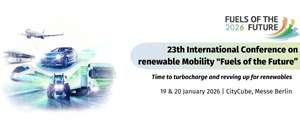Algae biofuel project launched in the Eastern Cape
Jacobs University in Germany has partnered with Nelson Mandela Metropolitan University (NMMU), in Port Elizabeth, South Africa, to expand the research with the intention of establishing pilot sites at various Eastern Cape industrial sources, including breweries, refineries and cement factories, by early next year.
The next step is to partner with major industrial facilities, both nationally and in other African countries.
Research being carried out by Jacobs University using marine microalgae to capture, through photosynthesis, carbon dioxide in flue gases at two major power stations is yielding impressive results.
A low-cost, custom-built 800m² photobioreactor set up at a lignite coal-based power plant has been converting carbon dioxide into biomass since August 2008.
Underpinning the German-South African partnership is a memorandum of understanding, signed in December 2008 between Phytolutions, which is jointly-owned by Jacobs University and several German investors, and InnoVenton, NMMU’s internationally recognised institute of chemical technology.
The Eastern Cape was selected for the pilot project as it boasts optimal coastal climatic conditions in which algae can thrive, along with a mix of industrial activity.
By June, a 200 m² photobioreactor, capable of producing 2 tonnes of dry biomass a year, will be up and running at NMMU. This will be followed early next year by the establishment of two 1,000m² photobioreactors at sites adjacent to interested industrial partners, to evaluate the technology in industrial applications.
Once harvested, the algae will be turned into dry biomass and converted into biofuels, glycerine and protein.










